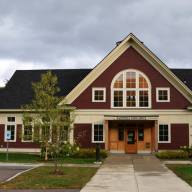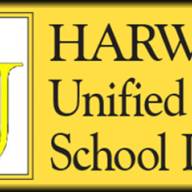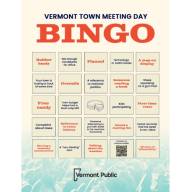By Stephen Zonies
Taxation without representation incited the American Revolution. Outrageous taxation with representation by a tiny handful of our representatives is just as egregious. Although not an identical situation, that exploitation by current federal, state, and local government officials has triggered a similar, nonviolent revolution. Since dumping tea into Boston Harbor isn't feasible, perhaps we can dunk our legislators into the Mad River?
I believe in the importance and value of education. My parents and brothers earned doctorate diplomas; quite the financial hardship for our parents. Yes, they funded our public education with their tax dollars and fed us.
FACTS:
- In 2020, a memorandum from the Vermont League of Cities and Towns described the system as “endlessly complicated, confusing and disconnected from the education budgets that voters adopt at the local level.”
- “If the connection between school budget votes and property tax liability is not clear to all voters, then legislative action to clarify the connection may impact voter decisions regarding local budgets and cost containment.”
- Americans are subject to 97 taxes. We don’t each pay every one of them. Most Vermonters pay ~52 of those.
- Vermont is currently ranked 49th for its economic outlook based on the state’s standing (equal-weighted average) in 15 important state policy variables.
- Health care costs place us fifth on the list.
- “The average effective property tax rate in Vermont is 1.73%, the fifth-highest rate in the U.S.”
- States with the highest property tax burden were Maine and Vermont.
- “. . . the 18th highest income taxed state.” Perhaps that would be an acceptable rating if our per-capita income gibed, but it doesn’t. Vermont salaries are 18th from the bottom.
- “Only eight states, regardless of household income, provide free school meals: California, Maine, Colorado, Minnesota, New Mexico, Michigan, Massachusetts, and Vermont.”
- Vermont ranks “second in the cost of food. . .behind Alaska!”
- “Vermont is one of only 10 states that taxes Social Security.”
- Perhaps our obscenely high cost of education would be acceptable if the means justified the end; however, students in 44 states scored higher SAT grades than Vermont.
- “Vermont has more staff per student than any other state. Vermont’s ratio of 4.4 pupils per staff member was the lowest in the country.” That is another explanation for our extremely high tax rate, which might be justifiable if the quality of education was in sync.
- “One cost containment strategy employed by many states is to limit taxes, restricting government revenues to a fixed amount or a certain growth rate. According to the Tax Policy Center, Vermont and New Hampshire are the only states that do not limit property taxes.”
- “Vermont’s education spending is one of the highest in the nation. Education absorbs 5.4% of all the income, the third highest share in the nation. But the most telling, and most relevant number, the fourth highest cost per student in the nation.”
- “Out of every $1 we pay in taxes 40 cents is spent on education, far exceeding the amount we spend on every other government function.”
DISCUSSION
- Picus Odden & Associates, report that there is no direct linkage between funding and student performance. The continued increase in education expenditure per pupil does not necessarily equate to improved student performance.
Vermont’s educational system fails its primary function, i.e. education. This proves that in spite of spending megabucks on this badly managed system, somewhere within that chain of command there are failing links. Could any private enterprise survive with such a pitiful end result? Prove to me that flushing more money down its toilet will improve the outcome? This is an objective and mathematical evaluation, not a subjective, emotional feeling.
Those who cannot afford the proposed increase in taxes will be forced to move. Others will voluntarily sell and leave. Neither will drive home the message nor effect our property tax rates. Those properties will still incur taxes which will be paid by either their current owners until they sell; or, by their new buyers.
SUGGESTIONS:
Almost every article I have read in The Valley Reporter and FPF have one common denominator – cost. Most opinions merely suggest that they do something to fix the broken system. However, 20 years of pleading to fix it has proven that our meek requests are falling on deaf ears. They’re too busy addressing other agendas for some of the people some of the time. In my opinion, first, they should focus on what affects all of the people all of the time (including students, teachers, and administrators). It seems to be human nature to complain. Perhaps offering solutions might provide for better outcomes. That said, here are my suggestions:
Understanding that everything costs more, let’s graciously consider allowing our already exorbitant property taxes to increase by only the CPI, 3.4% in 2023.
[Mad River Glen’s official ballot for 2024 annual meeting of owners states: “Any future increases to the APR will be limited not to exceed the proportional increase in the consumer price index.”]
Can we agree to be very generous and send them last year’s property tax plus 3.4%? Any excess difference can be deposited in an escrow account that will be released only after a more equitable formula has been approved by us, the taxpaying voters. Then, they will have to do what we have always had to do to make ends meet by cutting expenses and spending those dollars where they are needed most and will do the most good. Or, if that’s still not enough, do what we have to do, go to the bank and take out a loan. Payments will have to come from their available income stream -- our tax dollars. We will be in control, as it should be. Might there be attorneys willing to tackle this for us?
We’re not asking them to reinvent the wheel. Contact 44 other states and ask how they meet this challenge.
Zonies, DMD, lives in Fayston.












